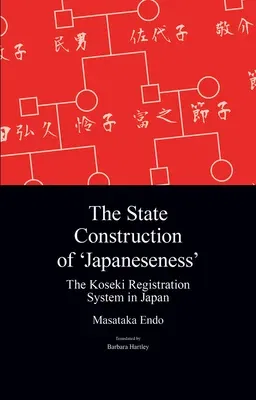Masataka Endo
(Author)The State Construction of 'Japaneseness': The Koseki Registration System in JapanHardcover, 10 May 2019

Qty
1
Turbo
Ships in 2 - 3 days
In Stock
Free Delivery
Cash on Delivery
15 Days
Free Returns
Secure Checkout

Part of Series
Japanese Society
Print Length
360 pages
Language
English
Publisher
Trans Pacific Press
Date Published
10 May 2019
ISBN-10
1925608816
ISBN-13
9781925608816
Description
Product Details
Author:
Book Format:
Hardcover
Country of Origin:
US
Date Published:
10 May 2019
Dimensions:
21.59 x
14.22 x
2.03 cm
Genre:
Asian - Japanese
ISBN-10:
1925608816
ISBN-13:
9781925608816
Language:
English
Pages:
360
Publisher:
Series:
Weight:
566.99 gm